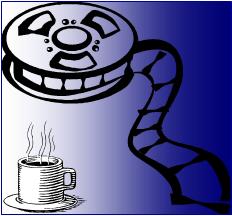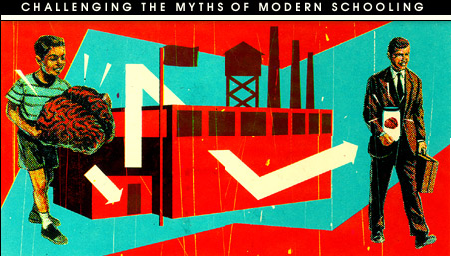

|
 |
Akeelah and the Bee ____ (8.5/10)
|
Please go to the new Coffee Coaster site implemented more gracefully in Wordpress. This page: http://brianrwright.com/CoffeeCoasterBlog/?p=5671 |
Keke Palmer ... Akeelah
Laurence Fishburne ... Dr. Larabee
Angela Bassett ... Tanya
Curtis Armstrong ... Mr. Welch
J.R. Villarreal ... Javier
Sean Michael ... Dylan
Sahara Garey ... Georgia
Akeelah: [quoting Marianne Williamson]
"Our deepest fear is not that we are inadequate. Our deepest fear is that we are powerful beyond measure. We ask ourselves, Who am I to be brilliant, gorgeous, talented, fabulous? Actually, who are you not to be?
We were born to make manifest the glory of God that is within us.
And as we let our own light shine, we unconsciously give other
people permission to do the same."
Dr. Larabee: Does that mean anything to you?
Akeelah: I don't know.
Dr. Larabee: It's written in plain English. What does it mean?
Akeelah: That I'm not supposed to be afraid?
Dr. Larabee: Afraid of what?
Akeelah: Afraid of... me?
The quote above comes from an especially important scene during the early stages of Akeelah's (Keke Palmer) training with her spelling coach, the superbly accomplished Dr. Larabee (Laurence Fishburne)—Larabee contended at the Scripps' National Spelling Bee some 30 years ago. What we have until that point is a normal girl—in the context of the South Los Angeles 'hoods—with a remarkable ability to see and spell words. It's only recently, through encouragement of her principal Mr. Welch (Curtis Armstrong) and a couple of teachers, that she's decided to compete in the Scripps' system.
The conditions surrounding the precocious Akeelah are discouraging to say the least. Her father died from a gunshot coming home from work one day, and her mother Tanya (Angela Bassett) scrapes by on menial labor when she can find the work. The aspirational quality of Akee's peer group is, shall we say, not what you'd find at a Tony Robbins seminar. She's constantly harassed by these two 13-something-year-old girls who feel compelled to trash any sign of achievement... however incipient. Akee has a slightly older brother who's bucking for dead-end, bling-bling gangdom, and a young-adult role-model brother training to be a pilot in the Air Force. She also has a girlfriend Georgia (Sahara Garey) who, except for the dismal environment, appears to be a normal teenage girl.
I appreciate the manner in which writer/director Doug Atchison takes his time to develop a believable set of conditions for a believable young person—with special qualities.
Especially, he gives us a South LA where residents aren't constantly under siege by flying bullets or pitched battles among the gangs and/or police. Indeed, it is LA—nice, sunny, once-middle-class homes, wide streets—a seemingly pleasant Southern California. Sure the neighborhood is poor and several of the homes are falling apart; occasional gangstas do their "smilin', stylin', an' profilin'."
But it's not a stereotype.
Nearly everything in Akeelah's social situation rings true, and one realizes that even for such kids "at risk" en masse, their lives become their own by virtue of the choices they make. If you want to make something of yourself and are prepared to follow through on tough choices, you can still succeed. The choices are made tough mainly by the social pressures to keep you down... which is true in the middle class suburbia government schools, too. Akeelah's story, thus, has a universal appeal and relevance... and the quote above—often attributed to Nelson Mandela—is a perfect message to send into the 'hoods rich and poor.
As a libertarian who understands, more or less, the powerful causal factors that work from the outside to keep the down-and-outers down and out[1], it still does my heart good to recognize that any individual is capable of rising above his circumstances. In the case of Akeelah, the way out is through language. One sees very quickly that not only is the spelling competition mostly about language, the development of superior language skills is mostly about morality. If I had to pick another movie that exemplifies the truth of the previous sentence, it would be Hoop Dreams... also focused on poor black children trying to move ahead through special skills.
In Hoop Dreams, more generally than in Akeelah and the Bee, you see how lack of English ability—particularly reading and writing, yet also as one's speech reflects the ability to think clearly—is the crucial determining reason for failure economically... and to a large extent, morally. The problem with the basketball hopefuls is if they don't make it out of the 'hood with their freakish sport skills, they're not going to make it out of the 'hood in life. Akeelah and the Bee makes the more positive case that if one applies oneself to a competition involving expert use of the English language, even if one loses the competition, one moves a giant step toward excellence as a human being.
From the English point of view—from someone who's major tool of livelihood is the written word—I found a couple of deeper technical understandings in Akee and the Bee. Mainly through the teaching of Dr. Larabee, it became clear to me that the way words are constructed provides clues to their meaning. And vice versa... which is what Larabee tries to convey to Akee: In order to spell a word properly if you listen to the smaller words that make it up while considering the meaning (you are given in the contest), you have a much better chance of spelling it properly.
Heck, I learned as much as the actors.
As one might guess, the intellectual subject matter for this movie would tend to jettison any hopes for actually having it produced. Initially, I thought the film was a documentary, but watching the Special Features, I learned quickly that it was completely fictional. [I suppose the extent to which one's creative project is considered real is a measure of how superbly conceived it is. A testimony to the imagination of the creator.] Also from the Special Features, one learns that if Laurence Fishburne had not come on board and accepted a smaller paycheck than his star status would garner, the movie would not have been made.
My respect for Mr. Fishburne, already high, just catapulted to the highest level... as an actor and as a man. He recognizes that the message of the movie is extremely important for kids in these real neighborhoods. English is your way out. [Look at the life of Barack Obama... even if he is a space lizard.] The movie is further rewarding by making it seem possible, even likely, that children from disadvantaged environments can compete with their peers anywhere. The development of the mind does not require massive amounts of cash, only love, respect, and work.
The cast deserves a huge helping of credit for
making the scenes work. Kudos to director-creator Atchison for executing the story in such a manner to give it dramatic impact. As a viewer, you will be cheering for the contestants as much as their families, teachers, and neighbors. Probably without either Fishburne or the young actor playing Akee (Keke Palmer) the movie doesn't reach the top ratings. IMDb viewers rank it at 7.7, which is exceptional, and I'm sure Rotten Tomatoes is similarly impressed. Ebert and Roeper are "two thumbs way up."
Definitely among the best family movies[2] you can buy or rent. It should be required viewing in all inner city classrooms... along with Hoop Dreams.
###
[1] ...especially in the late, great life and death of great American cities. Please check out my personal remembrances of the Detroit I once knew, and —when the banksters and Kleptocons (aka Alien Space Lizards) have been defeated—will know, proudly, again.
[2] I consider a family movie to be quite different from a kids' movie. Generally, I do not like kids' movies because they neglect to deal well with universals facing humans of all ages and circumstance. (It's an interesting question what constitutes family vs. kids type movies. For another review.)
,
Click banner to order, click here for book review


Click banner to
order, click here
for book review

Click banner to
order, click here
for book review
 |
 |
|||
| |